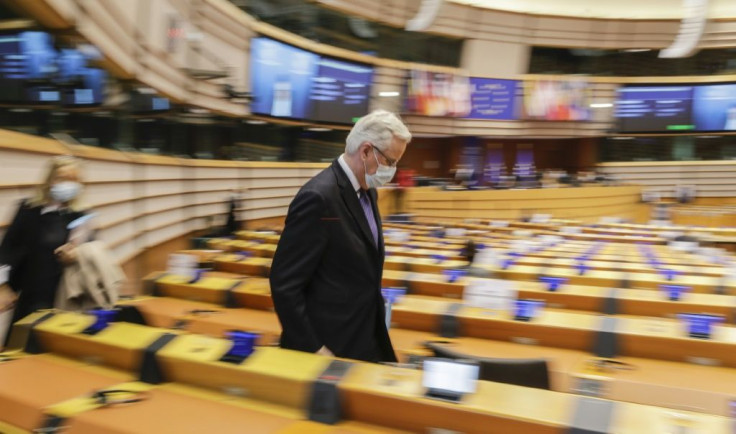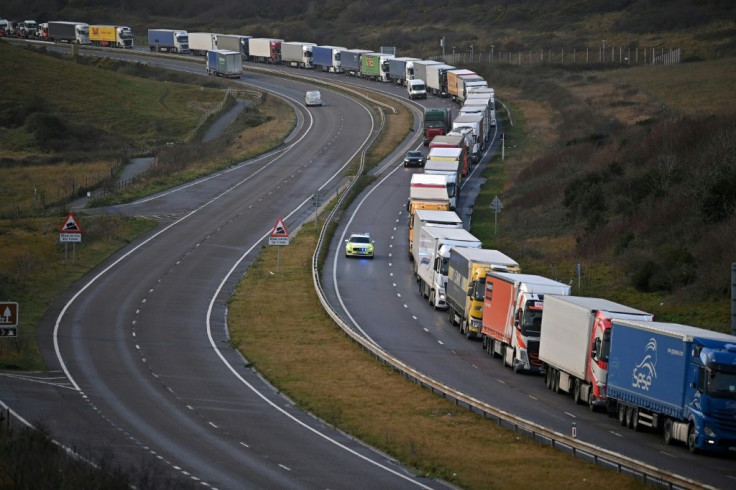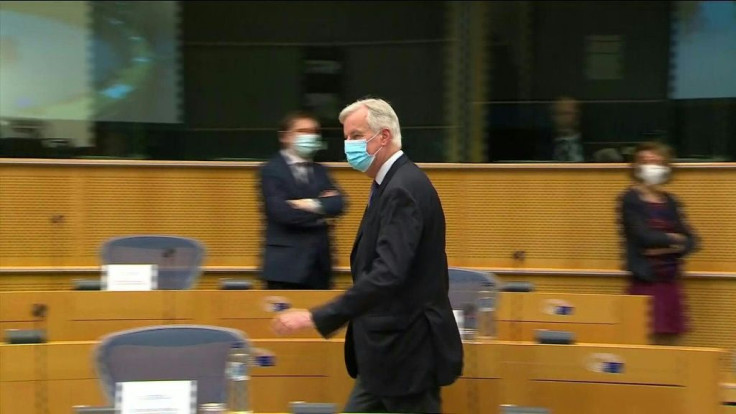Brexit Trade Talks Drag Into Weekend Despite Deadline Warning
British and EU negotiators took their gruelling quest for a post-Brexit trade deal into the weekend after failing again on Friday to resolve the highly-charged issue of fishing rights.
The UK will leave the EU single market in less than two weeks and time has all but run out for any agreement to be approved in time to head off a severe economic shock.
The European Parliament has demanded to see the text of any accord by Sunday at the latest, and the UK government says it will not allow talks to go beyond December 31.
EU member states do not recognise the parliament's deadline, but Brussels' chief Brexit negotiator Michel Barnier told the MEPs before heading to talks with his UK counterpart David Frost that Friday marked a "moment of truth".
"We have very little time remaining, just a few hours to work through these negotiations... if you want this agreement to enter into force on January 1," he said.

Britain's Prime Minister Boris Johnson, visiting northern England, said: "Our door is open. We will keep talking but I have to say that things are looking difficult and there's a gap that needs to be bridged.
"We have done a lot to try and help, and we hope that our EU friends will see sense and come to the table with something themselves," he said.
Britain left the European Union on January 31 and will leave the EU single market on December 31 at midnight Brussels time, with or without a follow-on accord.

Without a trade deal, cross-Channel trade will be conducted according to basic WTO rules and an entwined market built over 47 years of economic integration will be disrupted by tariffs on goods.
Johnson admitted "it might be difficult at first but this country will prosper mightily".
Late on Thursday, Johnson and EU chief Ursula von der Leyen held talks by phone that failed to break the logjam in the eight-month-old negotiation.
Barnier confirmed that fishing remains the main sticking point, with both sides having moved closer on the broader rules for ensuring fair competition.
And he stressed that the issue of fishing rights could not be side-stepped. "Everything comes together as a whole. Nothing's agreed until everything is agreed," he said.

According to a diplomatic source, Britain wants to recover 60 percent of the fish in its waters currently assigned to EU quotas -- and to review the deal in three years.
EU member states with northern fishing fleets have told Barnier that Britain should take back only 18 percent, and the transitional period should last 10 years.
Barnier hopes a compromise can be found and he met EU diplomats on Friday to seek wiggle room. But, the source said, his negotiating mandate remains the same and the member states united.
"On a personal note, I don't think it would be fair, nor acceptable, if European fishermen were not allowed... to have access to those waters," he said.
If the deal passes, he said, British companies trading in other areas would "remain stable in their rights" but EU fishing crews could lose out.
"So that wouldn't be fair, that wouldn't be honest," he said.
Many in Brussels see the doom-laden rhetoric coming from both sides as manoeuvring for advantage in the last moments before the deal -- said to be 95 percent ready -- is signed.
"It's like always in politics. It happens always at the end," veteran MEP and former Belgian premier Guy Verhofstadt told Sky News.
Nevertheless, as he prepared to see Frost once more, Barnier sounded a pessimistic note.
"I think I've always been frank with you, and open and sincere," he told the MEPs.
Also on Friday, the European Parliament gave the go-ahead to interim rules to manage road and air transport for six months and fishing for a year in the event of a no deal -- but only if Britain provides reciprocal access.
Meanwhile, unprecedented numbers of heavy goods vehicles are seeking to cross from France to Britain as the post-Brexit transition period comes to a close.
Traders are rushing to stockpile goods before December 31, exacerbating delays caused by the pre-Christmas rush and disruption to shipping from the coronavirus crisis.
© Copyright AFP {{Year}}. All rights reserved.





















